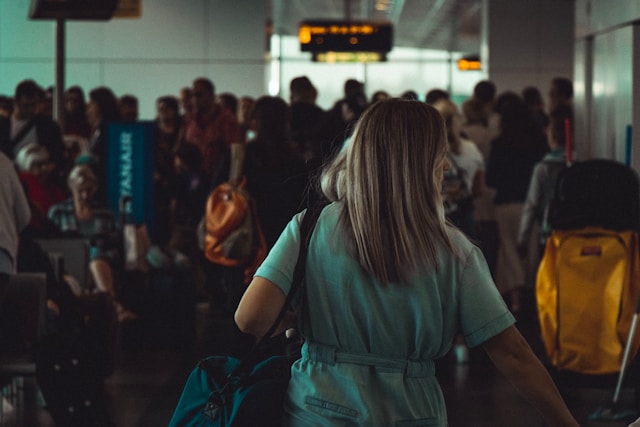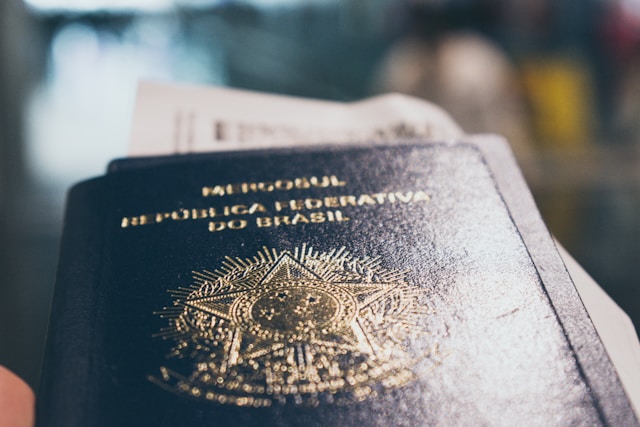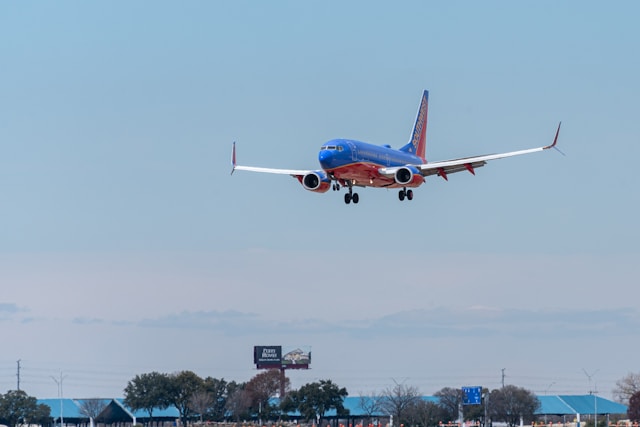See what 100+ travel leaders say about hotel program challenges. Get the white paper
We surveyed 100+ travel leaders on their challenges with hotel programs. Here's what they said.
Read the white paper

The U.S. travel industry is making its voice heard in Washington like never before. With international tourism rebounding, new regulatory debates unfolding, and midterm elections on the horizon, airlines, hotels, and trade groups have collectively spent millions on lobbying in the first half of 2025—and they’re targeting a wide array of federal policies that could shape the industry’s future.
According to public records compiled by OpenSecrets, Delta Air Lines spent $1.48 million on lobbying in Q2 alone, while the U.S. Travel Association (USTA), the industry’s leading trade group, has already crossed $1 million in expenditures through Q1 and continued to increase activity into Q2.
The Global Business Travel Association (GBTA) has also taken an active role, holding its annual Legislative Summit in Washington, D.C., and focusing on key priorities that align with the broader industry push.
Here’s a look at how much travel organizations are spending—and what they’re fighting for (or against) in Congress.
Q2 totals are still being consolidated, but multiple sources, including Skift, report that “travel companies spent bigger-than-usual amounts in Q2” on key legislative issues such as digital ID, visa backlogs, and hotel pricing rules.

Stance: Strongly supportive of increased funding and modernization
The travel industry is lobbying to bolster funding for TSA and Customs and Border Protection, aiming to fix long wait times and enhance traveler throughput. Delta, in particular, advocated for:
“FY 26 Department of Homeland Security Appropriations bill related to TSA and CBP funding and biometrics” (Quiver Quantitative).
USTA similarly pushed for increased staffing and faster processing, stating that TSA and CBP shortages are among the top barriers to tourism recovery. And GBTA specifically urged Congress to support funding for 5,000 new CBP officers and expansion of the biometric Entry/Exit Program.
Why?
Delays at checkpoints discourage business and leisure travel. By modernizing screening and expanding biometric systems, companies can reduce friction and improve satisfaction.
“If we want business travel to thrive, we need infrastructure and security systems that work at the speed of business,” said Suzanne Neufang, GBTA CEO (Hotel Business).

Stance: Supportive of faster, expanded non-immigrant visa processing
Visa bottlenecks are a major concern, especially for high-spend inbound markets like Brazil, India, and China. The USTA has pushed heavily for non-immigrant visa reforms, and GBTA joined the effort, highlighting that inbound international business travelers bring billions in direct spend to the U.S. economy.
In fact, each international visitor brings an average of $4,000 in spending to the U.S. economy. And with visa wait times still exceeding 400 days in some countries, the industry fears losing billions in potential revenue.
Travel groups are urging the State Department to prioritize visa staffing and processing reform, including digital visa issuance.

Stance: Mixed—online travel agencies support it, hotel chains often oppose
The Hotel Fees Transparency Act of 2025 (S.314/H.R.1479) would require all-in pricing at the time of booking, eliminating hidden resort or facility fees.
While Expedia and Booking.com support uniform rules to level the playing field, hotel giants like Marriott and Hilton have been more resistant.
“Hotels argue the bill represents overreach that limits pricing flexibility,” reported Skift.
All-in pricing may reduce consumer complaints, but it also undermines pricing tactics used to boost revenue or compete on base rates.

Stance: Strongly supportive of more funding and federal leadership
The USTA is lobbying to renew and expand the Travel Promotion Act, increase funding for Brand USA, and create a White House Global Events Task Force.
GBTA has aligned on messaging that business travel is a key economic driver, with an annual impact of $484.4 billion (1.9% of GDP).
Countries like the UK, UAE, and Australia aggressively promote inbound travel. U.S. firms argue they need similar support to remain competitive. USTA reports every $1 invested in Brand USA yields $26 in return.
This also includes calls for a senior tourism official in the Commerce Department to coordinate cross-agency efforts.
“Every meeting booked, every trip taken creates jobs and drives growth. That’s the value we brought to Capitol Hill,” Neufang told GBTA members at the summit.

Stance: Support incentives and credits; oppose mandates without subsidies
Airlines back sustainable aviation fuel to reduce emissions—but only if the federal government helps shoulder the cost.
Delta’s filings included support for:
“SAF tax credit provisions [and] Clean Hydrogen Production Credit” (nasdaq.com).
GBTA joined the push for sustainability, advocating for extending the Clean Fuel Production Credit (45Z) through 2031 to accelerate SAF production.
Why?
SAF is currently 2–5 times more expensive than conventional jet fuel. Carriers want public-private partnerships, not mandates that force adoption without support.
The 2025 lobbying surge reflects a strategic, coordinated effort by airlines, hotel groups, and associations like USTA and GBTA to shape policies that enhance security, mobility, competitiveness, and sustainability. Their efforts reflect a balance of passenger experience, policy certainty, and global competitiveness. And with major legislative activity expected ahead of the 2026 fiscal year, the industry’s investments in lobbying are set to influence travel policy well into the future.
► You’ll also like: The future of TMCs: Industry leaders on tech, talent, and transformation

We’ve curated some articles to keep you updated on all things Christopherson Business Travel.